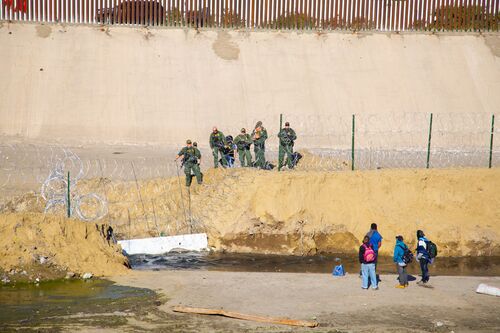DSAI Chair Pieternella Pieterese reflects on the DSAI call for opinion pieces on ‘Conflict, Climate, Migration’ in the context of the ongoing conflict in Gaza.
When the DSAI Steering Committee approved the focus of our next opinion pieces series to be ‘Conflict, Climate and Migration’, we did so in the context of the war in Ukraine, which had not only brought untold suffering and devastation to the people of Ukraine; it has also brought a significant shift in the aid context. A strong response to the need of Ukrainian refugees by some the world’s most generous aid donors has had a significant impact on the resources that have been available for refugees elsewhere in the world. Not only was that impact felt in the countries where the majority of the world’s refugees reside, places like Turkey, Pakistan, Bangladesh, Ethiopia, many of which are low or middle-income countries; the strain on resources has also been felt in high-income countries such as Ireland. This, in turn, has changed some people’s perceptions of aid and of our duty of care, especially as the Russia’s attacks on Ukraine have created a cost-of-living crisis across the world. Given the complexity of this context, DSAI decided to create an opportunity for our membership to contribute their opinion pieces; to provide a platform for insightful texts that would be able to inform the Conflict, Climate and Migration debates and draw attention to perhaps under-exposed aspects of these enormous 21st century challenges.
DSAI could not continue promoting this call for opinion pieces without acknowledging the current conflict in Gaza, in which so many innocent civilians have lost their lives. As Chair of DSAI’s Steering Committee, I support the United Nations’ call for the immediate cessation of all hostilities and a return to peace negotiations. This conflict has not only exacerbated some of the already highlighted challenges, but it has also drawn in political actors from across the Middle East who appear to be supporting either side of the involved communities for their own political gain, destabilising the region. The conflict has furthermore created divisions and seems to have given rise to unprecedented levels of AI-enhanced misinformation about the conflict and the affected populations.
The climate crisis is having an undeniable impact on the everyday lives and civilians face no option but to leave their homes to flee natural disasters and slow ecosystem collapse due to drought and desertification. All the while, other conflicts rage in so many places that it is almost impossible to comprehend [1].
In January 2023 the UN stated that the world was then witnessing more conflicts then ever, since it started tracking conflicts after WWII [2]. Sudan’s warring factions continue to inflict large numbers of civilian casualties, armed conflict is spreading in Myanmar, and in a number of restive West-African states such as CAR and Chad, Burkina Faso, Mali, and Niger, where recent coups and Russian-backed and/or Islamic insurgents are destabilising country’s government and fuelling localised attacks and displacement – these are only a fraction of the currently ongoing conflicts. In this time of unprecedented numbers of conflicts, we witness an enormous strain on the capacity of countries adjacent to conflict-affected nations to host and care for refugees, and dwindling resources from wealthy western aid donors to support these refugee populations. In parallel, we see ever greater numbers of desperate individuals risking their lives in a bid to reach the safety and opportunities that may be found in western countries.
In these challenging times, the knowledge, expertise and experience of our members is more important than ever; the voices of humanitarians, researchers, development practitioners, local experts, students, refugees. DSAI wants to offer a platform to those of you who are willing to share constructive and well-informed pieces that can clarify points of view based on expertise rather than soundbites; we welcome well-considered opinions that can illuminate not antagonise. We aim to generate constructive dialogue and perhaps even bring a sparkle of hope.
Details on the call and how to submit are available here.
1: Council on Foreign Relations [online] 2023, Global Conflict Tracker, available: https://www.cfr.org/global-conflict-tracker, accessed 05/12/2023.
2: United Nations [online] 2023, 9250th Meeting of the UN Security Council, 26 January 2023 “With Highest Number of Violent Conflicts Since Second World War, United Nations Must Rethink Efforts to Achieve, Sustain Peace, Speakers Tell Security Council” available: https://press.un.org/en/2023/sc15184.doc.htm, accessed 05/12/2023
Photo by Humberto Chávez on Unsplash
